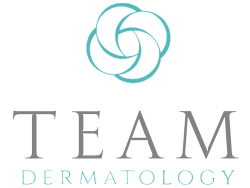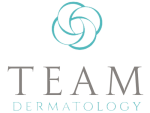Histamine is a chemical, known as a biogenic amine. It plays a role in several of the body’s major systems, including the immune, digestive, and neurological systems. The body gets all the histamine it needs from its own cells, but histamine is also found in certain foods and medications; therefore, your doctor may recommend a low histamine diet.
It is also important to remember that histamine tolerance varies significantly from one person to the next.
The primary benefit of a low-histamine diet is that it can serve as a diagnostic tool. After you eliminate or reduce histamine in your diet for 2 to 4 weeks, you can begin slowly introducing histamine-rich foods back into your meal plan, one at a time.
When you add histamine back into your diet, you can carefully evaluate which foods trigger uncomfortable symptoms, if any.
If you experience dizziness, headaches, or any other complications, you should stop this diet immediately and consult with your doctor.
Certain medical conditions may increase the risk of histamine intolerance. These include:
- Gastrointestinal Disorders Or Injuries
- Crohn’s Disease
- Gastroesophageal Reflux Disease (Gerd)
- Liver Conditions
- Chronic Or Extreme Stress
- Injury
- Trauma
- An Imbalance In The Gut Microbiome
Some prescription or over-the-counter drugs may interfere with the enzyme that breaks down histamine, such as:
- Theophylline
- Heart Medications
- Antibiotics
- Antidepressants
- Antipsychotics
- Diuretics
- Muscle Relaxers
- Pain Medications (Aspirin, Naproxen, Indomethacin, Diclofenac)
- Gastrointestinal Medications
- Alcohol
- Malaria And Tb Drugs
Foods to avoid on a low-histamine diet
Even in the same food product, like a piece of cheddar cheese, the histamine level can vary significantly depending on how long it’s been aged, its storage time, and whether it has any additives. Many foods that have been fermented have the highest level of histamine and most fresh, unprocessed foods have the lowest levels.
The following foods contain higher levels of histamine:
- Fermented Dairy Products, Such As Cheese (Especially Aged), Yogurt, Sour Cream, Buttermilk, And Kefir
- Fermented Vegetables, Such As Sauerkraut And Kimchi
- Pickles Or Pickled Veggies
- Kombucha
- Cured Or Fermented Meats, Such As Sausages, Salami, And Fermented Ham
- Wine, Beer, Alcohol, And Champagne
- Fermented Soy Products Such As Tempeh, Miso, Soy Sauce, And Natto
- Fermented Grains, Such As Sourdough Bread
- Tomatoes
- Eggplant
- Spinach
- Frozen, Salted, Or Canned Fish, Such As Sardines And Tuna
- Vinegar
- Tomato Ketchup
Ways to help eliminate histamine-rich foods and practice a lower histamine diet:
- Cook All Your Own Meals
- Eat Foods That Are As Close To Their Original Form As Possible
- Record Everything You Eat In A Detailed Daily Food Diary (Be Sure To Include The Time Of Day You Ate Each Food)
- Record The Times And Dates Of Any Uncomfortable Symptoms For Comparison
- Avoid Junk Food Or Anything Highly Processed (If There Are Numerous Ingredients And The Food Item Is Ready To Eat)
- Don’t Be Too Hard On Yourself As This Diet Is Very Restrictive
- Don’t Plan On Eating This Diet For More Than 4 Weeks
- Eat Only Fresh Foods That Have Been Kept In A Refrigerator
- Speak With A Dietitian Or A Nutritionist About Getting All The Nutrients You Need While On This Diet
- Talk To Your Doctor About Vitamin And Mineral Supplements (Consider Dao Enzyme Supplements, As Well As Vitamin B-6, Vitamin C, Copper, And Zinc)

